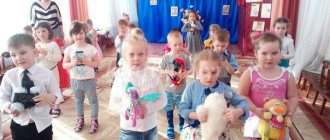Planning work with parents (persons in their stead)
Planning work with parents (persons in their stead).”
Contents and types of planning of the teacher’s work with the family.
Creating a plan for a teacher’s work with a family means developing a project for the educational process, in which the tasks and means of their implementation and achievement are clearly defined.
Planning largely determines the results and effectiveness of the educational system. Purposeful and clear planning helps teachers avoid many mistakes and negative phenomena. A well-founded plan allows you to outline general prospects and specific ways to solve the educational tasks set.
As pedagogical practice shows, a plan is often treated only as an administrative requirement, and the planning process, unfortunately, is limited to the framework of drawing up and writing a plan. With this approach, the plan is undoubtedly of a formal nature and cannot be
61
a guideline for activities. The effectiveness of the results achieved and the success of any activity largely depend on how competently this activity is planned.
The purpose of the plan is to streamline teaching activities, ensure the fulfillment of such requirements for the pedagogical process as planning and systematicity, controllability and continuity of results. In the most general sense, a plan is a document indicating the substantive guidelines for an activity, defining its order, volume, and time boundaries. It performs the following functions:
ü guide, defining, i.e. specific directions and types of activities;
ü predictive, i.e. indirectly reflects the plan, presents results through specific actions;
ü coordinating, organizational, i.e., on the one hand, it reflects how, by what means the activity is organized and who is its subject and object; on the other hand, it indicates the order of activity, its relationship with other types, and also reflects the interaction of subjects of activity, determines its place and time, answers the questions: who, what, when and where should do it;
ü control: firstly, the teacher himself, using the plan, can control the implementation of the goals; secondly, according to the plan it is easy to check how much it corresponds to reality; Moreover, the level and quality of the plan to a certain extent indicate the professional competence of the teacher;
ü reproductive (reproducing), i.e. after any period of time according to the plan, you can restore the content and volume of work completed
work" With proper organization of planning, the plan will become non-formal
paper, but a document that can protect the teacher from unreasonable demands and claims, proving a systematic approach to organizing the pedagogical process. Therefore, first of all, it is necessary to treat the plan as your own working document, which is needed by the teacher himself, and not by the administration, in order to act not chaotically, but in accordance with his plan, goals, capabilities and requirements for the pedagogical process.
In the practice of work of kindergarten teachers, the following types
of plans
: annual - a work plan for a kindergarten, including the main events of the school year, long-term, which specifies the assigned tasks at a certain point in time, taking into account requests
62
parents and their level of pedagogical literacy. If necessary, educational action plans are drawn up.
Planning interaction with parents is one of the most important areas of work in raising preschoolers. Teachers need to realize that parents are the customers of educational and educational services provided by preschool education institutions. Therefore, it is so important that during the educational and training processes carried out in kindergarten, sufficient attention is paid to improving the pedagogical level of mothers and fathers. Planning includes a wide variety of forms and methods, using which teachers can be confident in the high effectiveness of working with parents. The annual plan of the institution contains the main directions along which interaction is carried out with parents, teachers and children, that is, with all subjects and objects of the pedagogical process.
Collective (group, frontal) forms of work should be rationally combined with individual work with individual parents. Plans must certainly provide for a variety of activities and define methods and techniques of organization and management.
In planning the content of work with parents, the preschool educational institution plays a role and, as a rule, is a priority. For example, if this is an artistic and aesthetic direction, then the emphasis is on the essence and tasks of aesthetic education, their solution in different age groups. It is advisable to introduce parents to the organization of leisure and holidays in institutional and family settings, and to involve them in the preparation and conduct of such events. The topics of communication with parents may include problems of teaching children to draw and develop musical perception. It is good to involve specialists in the consultation (for example, a psychologist, music director, art teacher), and conduct open screenings of children's creativity.
Planning work in a preschool educational institution gives the process of education and upbringing of children an organized character, which makes the teacher’s work more meaningful and effective. The main purpose of planning is to ensure the achievement of set goals and objectives.
Requirements for planning work with parents.
The plan is an assistant in constructing educational work if it meets a number of requirements.
63
1. The purposefulness of the plan, that is, the planned content and forms of work, provides for the implementation of specific goals and objectives. Every deed and action should contribute to solving the assigned tasks. Depending on the purpose, each form of work has its own specifics in its use.
2. The plan is focused on meeting the needs and interests of parents.
3. The plan is the result of joint creativity of teachers, children, and parents.
4. The work plan provides for the connection of the educational process with practice.
5. Focus on the comprehensive nature of plans, which implies: a) diversity of content and forms of work; b) positive impact on various aspects and personality traits;
c) inclusion of parents in different types of activities; d) the integrity of the impact on consciousness, feelings, behavior.
6. The plan provides for the creation of conditions for parents to choose various types and forms of activity.
7. When planning, it is necessary to ensure continuity of the content and forms of activity: to exclude unjustified duplication, to take into account previous experience, to see prospects in the work.
8. The specificity and expediency of the plan, the validity of the planned work, which involves taking into account the characteristics of each student and teaching team, their level of development, established traditions, the pedagogical validity of the planned work in accordance with the tasks of the team.
Knowledge control
on the topic “Planning work with parents (persons in their stead).”
Questions:
1. List the basic requirements for planning work with parents.
2. What is included in the content of planning the work of a teacher with a family.
3. Types of planning of interaction between the teacher and the family.
Recommended topics for practical classes:
1. Analysis of the annual plan for the work of the kindergarten with the family.
2. Drawing up a long-term plan for working with the parent community in the preschool educational institution.
The topic is vast
Abstract: Planning the educational process in a preschool educational institution
Introduction………………………………………………………………………………2
Chapter 1. Theoretical foundations of planning the educational process in
preschool educational institutions.
1.1 Planning as a management function and a component of professional and pedagogical activities………………………………………………………………………………5
1.2 Specifics of the educational process in preschool educational institutions……………………………13
1.3 Features of planning the educational process in preschool educational institutions. ………..19
Conclusions on Chapter 1……………………………………………………………………………….31
Chapter 2. The state of the educational process in MDOU No. 14 “Romashka”,
Kumertau
2.1. Analysis of the state of planning the educational process in preschool educational institutions……32
2.2. Recommendations for planning the educational process in preschool educational institutions……37
Conclusions on Chapter 2……………………………………………………………….40
Conclusion…………………………………………………………………………………41
Bibliography. …………………………………………………………….43
Appendix………………………………………………………………………………..46
Introduction
Relevance of the topic.
In the conditions of instability of the modern world, the crisis of the public preschool education system in Russia, it is very important for the director of a kindergarten to take adequate operational measures to preserve and develop the institution entrusted to him.
Planning is a key management function, the full implementation of which is one of the main factors ensuring the effectiveness of a manager. That is why the issues of training kindergarten leaders in the skills of scientific planning of their activities and its effective organization are becoming extremely relevant. Planning eliminates uncertainty, focuses attention on major objectives, achieves efficient economic performance, and facilitates management control.
With proper planning, it becomes possible to predict the performance results of each specific employee, which makes it easier to achieve common goals and objectives. Research in the field of management confirms a direct relationship between the ability to plan and the success of a manager as a whole.
The essence of planning is to direct the activities of preschool educational institutions to develop solutions aimed at adapting the kindergarten to constantly changing conditions, neutralizing factors that negatively affect the entire preschool education system as a whole.
In the psychological aspect, the basis of planning is the leader’s overcoming of stereotypes of thinking: a change in attitude from “global” (abstract) planning to a strategy for drawing up several options for a future scenario, from a model of directive planning to probabilistic models of development.
An analysis of regulatory documents on preschool education and a study of the experience of managing a preschool institution allow us to conclude that it is necessary to improve the educational process and manage it in new conditions. An analysis of the works of K.Yu. Belaya, L.V. Pozdnyak, A.N. Troyan showed that the problem of the content and implementation of the function of planning the educational process has not been the object of special research until now, although some of its aspects have been considered in connection with the study organizational and pedagogical activities of heads of preschool institutions.
An analysis of the works of Yu.A. Konarzhevsky, M.M. Potashnik, A.M. Moiseev, P.I. Tretyakov, E.A. Yamburg and others on the management of an educational institution showed that the main attention of scientists is aimed at studying the problems of managing the educational process in a modern school. The technologies for developing an innovative school proposed in them, of course, cannot be fully used in managing the development of a preschool institution due to its specificity.
Thus, the problem of planning the educational process in preschool educational institutions as the initial link of the education system is currently insufficiently developed. The practical significance of this problem and its lack of scientific development make it relevant.
Object of study:
management process of a preschool educational institution.
Subject of study:
planning the educational process as a function of preschool educational institution management.
Research hypothesis
: The process of managing a preschool educational institution will be effective subject to the systematic use of forces, means, time, and human resources to achieve an optimal result.
Goal of the work
: study the features of planning the educational process in a preschool educational institution.
To achieve this goal, it is necessary to solve the following tasks:
1. Conduct an analysis of scientific-methodological and psychological-pedagogical literature on the problems of managing a modern preschool educational institution.
2. Reveal the features of planning the educational process in a preschool educational institution.
—> READ COMPLETELY



